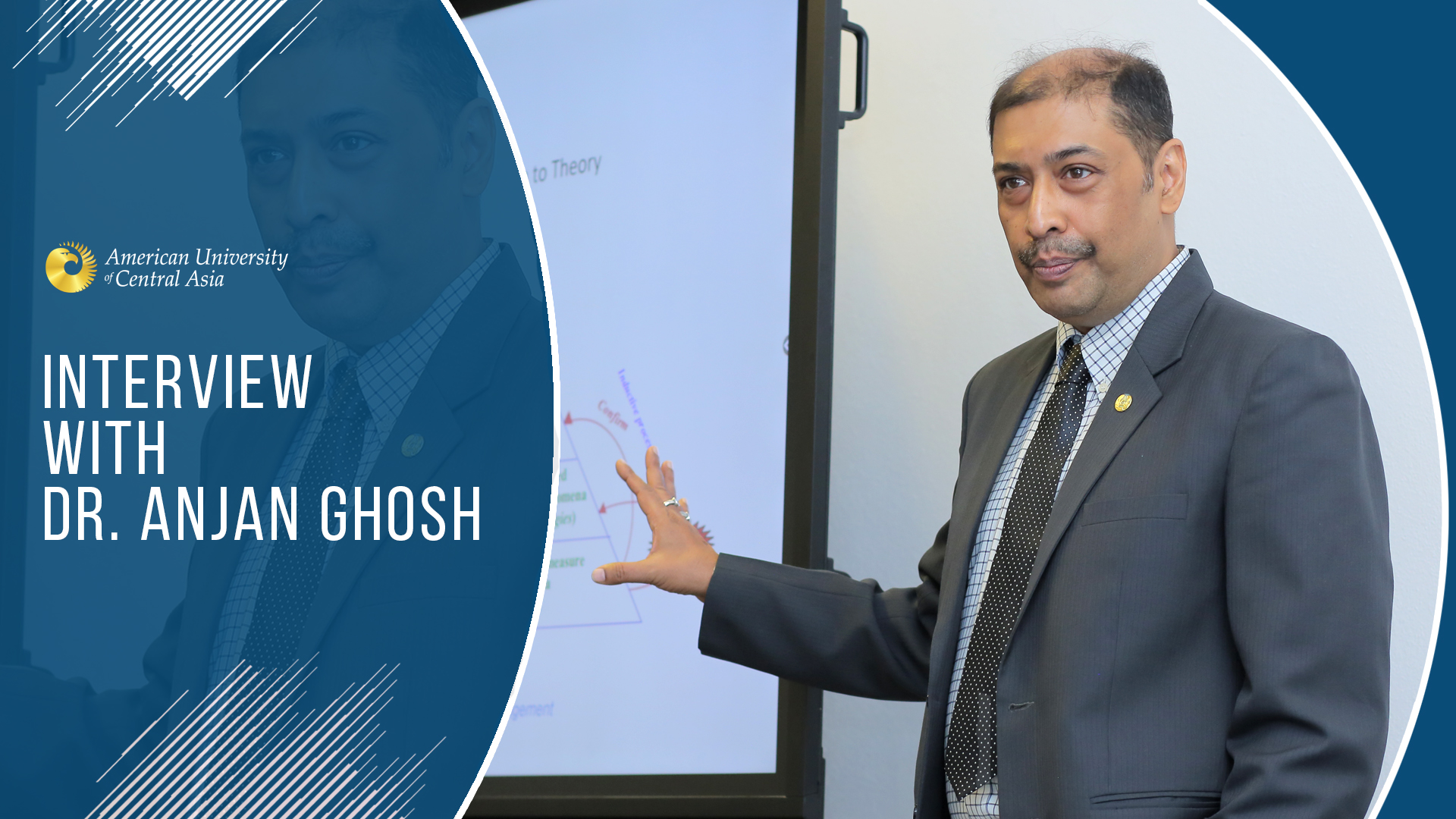Interview with Dr. Anjan Ghosh
December 16, 2022
��
Interview with Dr. Anjan Ghosh
��
��
One can come across Dr. Anjan Ghosh's name in numerous publications of the world's best scientific journals in the field of management. Dr. Anjan Ghosh, Associate Professor of Strategy and Entrepreneurship at Suleyman Demirel ��ɫtv, Kazakhstan and former Director of the research center at the Narxoz��ɫtv Business School. Last week he visited AUCA to share his experience in the business case study publications and gave a capacity buildingseminar to Business School Faculty.
��
��
Dr. Anjan Ghosh, it's a huge pleasure to welcome you in AUCA, please can you briefly present yourself?
��
��
My name is Dr. Anjan Ghosh, people call me a "Case Professor". I'm 50 years old, first part of my life I was an entrepreneur. I created a company in India, which further became big, got listed on NASDAQ and finally, it was acquired. After the acquisition, I got tired of corporate, so I shifted to Academia. I did my Ph.D. at one of the top Asian Global Businesses Schools in strategic management and social entrepreneurship. Interestingly, after receiving my doctorate, I started teaching for the first time at AUCA in 2017. Then I decided to focus as a researcher and teacher in Central Asia, and now I am marked as one of the global scholars from Central Asia who conducts research and brings them to the board.
��
��
What is your mission at AUCA and what mission you had?
��
��
I lead something called case movement. It all started here at AUCA, I was working on developing a course on social entrepreneurship. Later, I was asked to teach Strategic Management to MBA students. I went to the class with a specific business case, and I found out that this is something new to students. I thought it was my problem that I was using a case on a company in the U.S., so I tried looking for cases in Central Asia, and I found there were none. In Central Asia, there was no concept of a case study at all, teachers looked through textbooks, gave test papers, and students wrote theory exams. But where is the real application?
��
��
Could you please tell us about the importance of case studies?
��
��
Back in 2017, I realized that my employers in Kyrgyzstan and Kazakhstan faced the problem of management education in Central Asia. I suggested running a Case Research Development Center and universities in Kazakhstan invested a budget in the development of the Case Research Center. What is a case? A case is a story or a narrative of an organization. In a management case, we try to focus on the business challenges that the managers are facing. We bring the challenge into the class in a form of a case and then ask students to solve it. There are two things that we have to do before taking the case into the class. First, we have to back test and thoroughly research an organization to find challenges, then we should write it in a form of a case. We call it case research and case publication. In a Case Research Center, we work on three main things:we teach teachers how to use case practice in the classroom; we assist researchers in conducting case studies; we help students solve business problems that come to them in the form of a case. All this together is a case study method, in which we work with unique organizations and find ways why this organization or company has become so unique. Let me give you an example. My student and I were having burgers at We'd Meat Burger. This place was modern, built in the style of a jazz-themed burger joint, and the food was tasty. For some reason, we got interested in the organization and we decided to do a small research what we found was mind-blowing. This is a family business, which was run for almost 40 years, this family owned three successful restaurants in Almaty. The moment when a new head from the family got the management of the business, the Soviet Union collapsed and religion entered the country. This person became a humble and serious follower of Islam. All these three restaurants were selling alcohol, he decided to change the whole approach abruptly, he closed all the restaurants and started something new, he said his business would stick to halal principles. So, we found that religion can influence an entrepreneur's mindset and family business model.
<< go to news list
